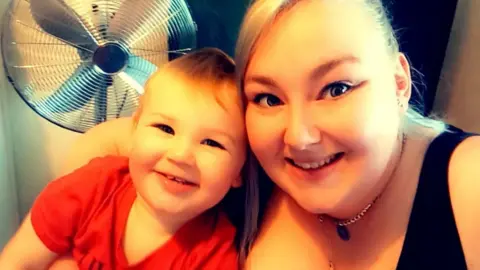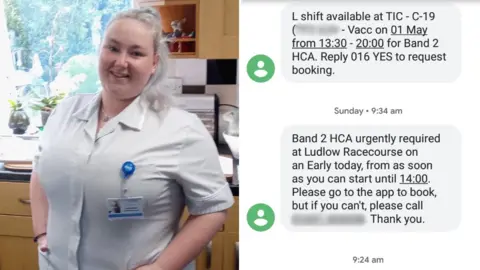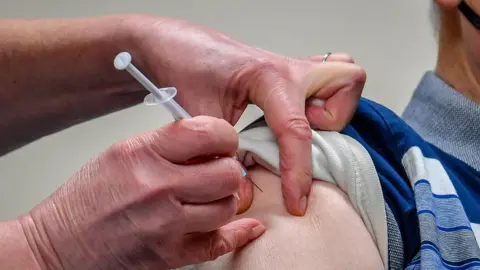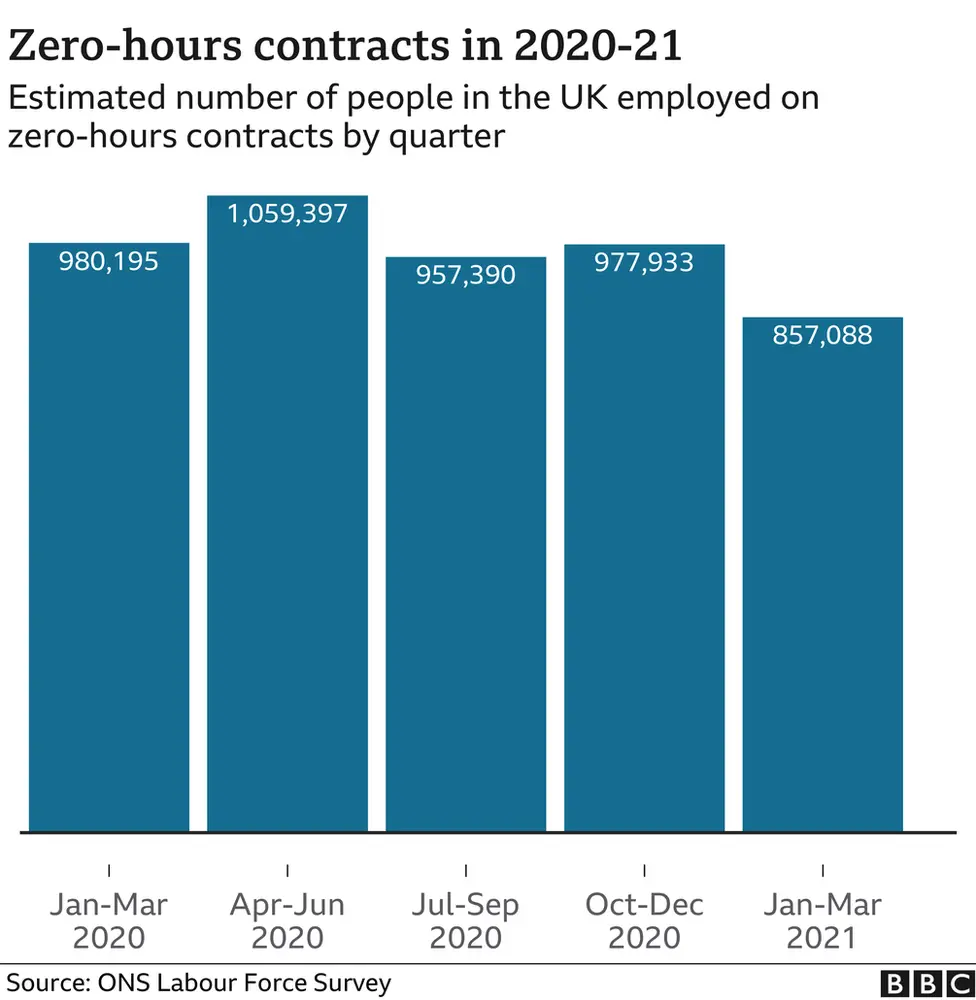NHS vaccine worker 'not done a shift' in four months
 Caroline Wood
Caroline WoodStaff employed by NHS vaccination hubs have hit out at the use of zero-hours contracts, with one saying she had not done a shift in four months.
Zero-hours contracts have been widely used during the rollout, which has now seen more than 36 million people vaccinated.
However, little notice on shifts and unpredictable hours have left some staff with no work.
Caroline Wood, 29, from near Market Drayton, in Shropshire, jumped for joy when she was offered a job in January as a healthcare assistant, supporting vaccinators at the county's centres.
Previously working as a cleaner in a care home she had experienced the benefits of zero-hour contracts - flexible hours and the freedom to choose shifts.
"I started working in August last year for a company and I was doing laundry, kitchen and cleaning and it was zero-contract which I didn't think too much about," she said.
"There was plenty of hours and I could even have more than what I was able to do."
However, the job came to an end when the care home closed down in Autumn 2020.
A few months on, she said she had a feeling of "pride" and excitement when she was offered work with her local NHS vaccination team.
 Caroline Wood
Caroline Wood"When speaking on the phone prior to accepting the job, I was told that it would be zero-hour contracts, but there would be plenty of shifts in the five or six areas near me, the closest one being Market Drayton," she said.
"I thought - well this is perfect, this will fit around my son's childcare and if my husband wasn't working at the weekend, I could do a few more shifts," Ms Wood said.
"It was one job I thought I'd be really proud of and unfortunately, still to this day, I have not done a shift."
Her experience is far from unique.
Several other people employed by the NHS on zero-hours contracts at vaccination centres in the West Midlands told the BBC they were yet to do shifts, but did not want to talk publicly.
Ms Wood said she had gone through hours of online training and attended online meetings which were sometimes cancelled without notice.
She said of the very few shifts that had been offered on the specialist app, about 90% were 50 miles away in Ludlow, and usually last-minute, making it difficult to fit in with childcare.
After a couple of weeks, she called the recruitment team and explained she had not even done a shadowing shift, which she said some centres required.
 Ben Birchall
Ben Birchall"I was told that there was 'a moment of quietness of needing staff' so I asked when it would get busier and told to keep checking the app," she said.
"And I'm still waiting for a shift. I just feel like I've been strung along really."
Ms Wood and her husband are currently living with family after they had to move out of their rented property just before lockdown in March 2020.
She said she now saw that as a blessing financially, "otherwise I think it'd be trips to the food bank. I don't like to think about it".
"I had had a good experience with zero-hour contracts, but this one has thrown me off."
'Not fair'
Solicitor Alison Loveday, a partner at the Kennedys Law firm, said zero-hour contracts mean little from a legal point of view.
"Zero-hour contracts have grown in their use, and that's created a lot of uncertainty," she said, adding there was a growing perception they were often "not fair".
People working in sectors relying heavily on zero-hours contracts, such as hospitality, have been "disproportionately disadvantaged" during the pandemic, she added.
"I think, with the NHS and particularly with the vaccine program - it's just not the sort of business that you would expect... would need to use zero-hour contracts."
Given the speed and scale of the vaccine rollout she said it was not clear why staff could not be guaranteed hours.
"If you're an individual even a guarantee of say 10 hours a week is a much improved position than zero," she said.
Figures show the use of zero-hours contracts peaked soon after England's first lockdown started.

On its website NHS England said it was "grateful to the tens of thousands who applied and trained for a paid or voluntary role as part of this programme, thousands of whom have already started playing their part".
In a statement, the team leading the vaccination effort in Shropshire said it had recruited a large number of staff to ensure it could meet demand.
"Supply of vaccine has varied, meaning that there have been times when the staffing needs were lower and other periods where it has been flat out seven days a week.
"We do acknowledge that there are some people who have experienced frustration by not being able to access as many shifts as they may have wanted, or have experienced short-notice cancellations when we were responding to variable vaccine supply."
However, it said it expected to be approaching another busy period as the rollout moves on.

What is your experience of NHS zero-hours contracts? You can get in touch with BBC News West Midlands team by emailing [email protected].
Please include a contact number if you are willing to speak to a BBC journalist.
- Please read our terms & conditions and privacy policy

Follow BBC West Midlands on Facebook, Twitter and Instagram. Send your story ideas to: [email protected]
